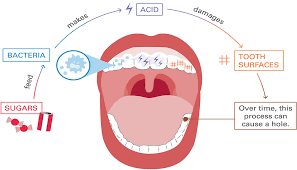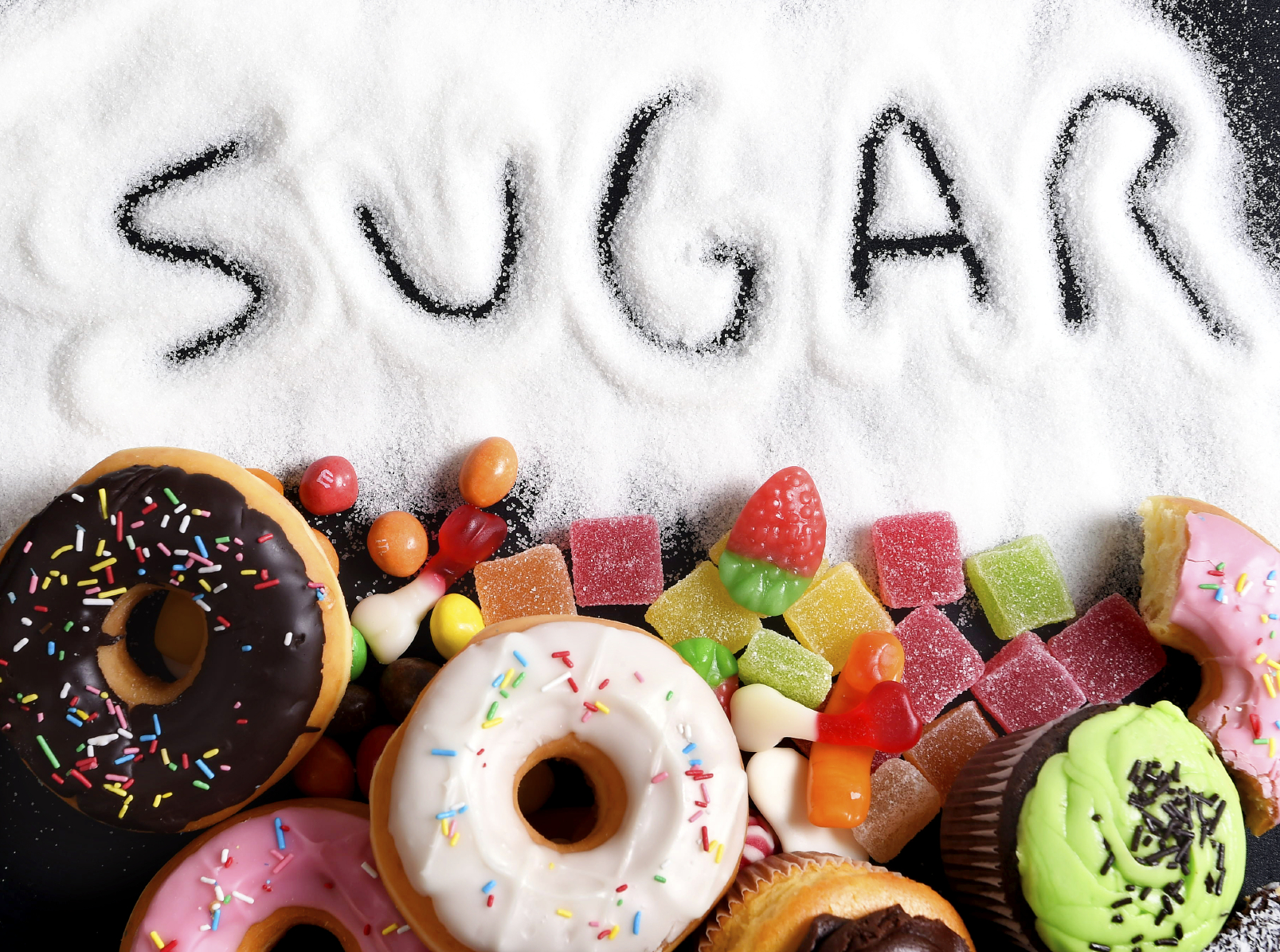Sugar is the single largest cause of dental caries (or tooth decay as it is more commonly known)
The facts:
- Twenty-three percent of 8-year-olds and 40% of 15-year-olds consume sweet snacks or drinks between normal meals three or more times a day10; half (48%) of all adults snack between meals, most commonly on biscuits and cakes.
- More than 8 out of 10 adults (86%) consume at least three servings a day of foods high in fats and sugar. The Food Pyramid recommends that these foods are best avoided and limited to “no more than 1 serving a day maximum and ideally not everyday.”
- Poor nutrition is a “shared common risk factor” for cardiovascular diseases, cancer, obesity and oral diseases.
- A healthy diet for oral health should be promoted as part of general nutrition advice.
(Source: Dental Health Foundation 2018)
How to cut your sugar intake:
- Swap out the sugary fizzy drinks for their diet versions. Water is best, but if you really want something sweet to drink diet drinks can be a better choice than sugary ones.
- Avoid fruit canned in syrup, especially heavy syrup. Drain and rinse in a colander to remove excess syrup or juice.
- Check food labels and choose products with the lowest amounts of added sugars. Dairy and fruit products will contain some natural sugars. Added sugars can be identified in the ingredients list.
- Replace it completely. Enhance foods with spices instead of sugar. Try ginger, allspice, cinnamon or nutmeg.
- Try extracts. Instead of adding sugar in recipes, use extracts like almond, vanilla, orange or lemon.
- When baking cookies or cakes, cut the sugar in your recipe by one-third to a half. Often you won’t notice the difference.
- Use fresh fruit such as raspberries or blueberries to sweeten your breakfast cereal.
Keep your oral health in check, schedule regular dental exams and let us help you maintain a healthy smile. Click here to book.
How much sugar is too much sugar?
Sugars in food and drinks play a major role in the development of tooth decay. Bacteria within the plaque use the sugar as energy and release acid as a waste product, which gradually dissolves the enamel in the teeth.
Everyone is at risk of tooth decay, but children and teens are most at risk. Dental caries are the most common cause of tooth loss in young people. Plaque begins to build up on teeth only 20 minutes after we begin eating and if it is not removed effectively, tooth decay starts. People who regularly consume sugar have a higher risk of developing dental caries, particularly if the food they eat is sticky or consumed in between mealtimes. Sugar-containing snacks and sweetened beverages have particularly bad effects on teeth.
We currently consume far too much sugar in our diets. A report published by the World Health Organisation highlights the need for a reduction in sugars intake to 5% of our energy intake. This is the equivalent of 7 teaspoons/cubes or 30g of sugar per day for an adult. The recommendation for children is 24g for children aged 5-11 and 19g for children aged 4-6. This 5% limit is far below the current intake which is of 11.9% in children aged 1.5 to 3; 14.7% in children aged 4 to 10; and 15.6% in children 11 to 18. It is also thought that adherence to the 5% recommended sugar intake would halt the increase in obesity.
Ways to reduce your risk of tooth decay:
- Brushing teeth thoroughly twice a day with fluoride-containing toothpaste as well as flossing daily.
- Reducing the amount of sugars-containing sticky food, and rinsing the mouth with water if they are consumed.
- Reduce snacking; which helps reduce the production of acid in the mouth.
- Reduce the consumption of sugars-sweetened beverages.
- Only eat sugary foods at mealtimes.
To book an oral health review and talk to one of our general dentists about how you can protect your teeth from decay click here.


Leave A Comment